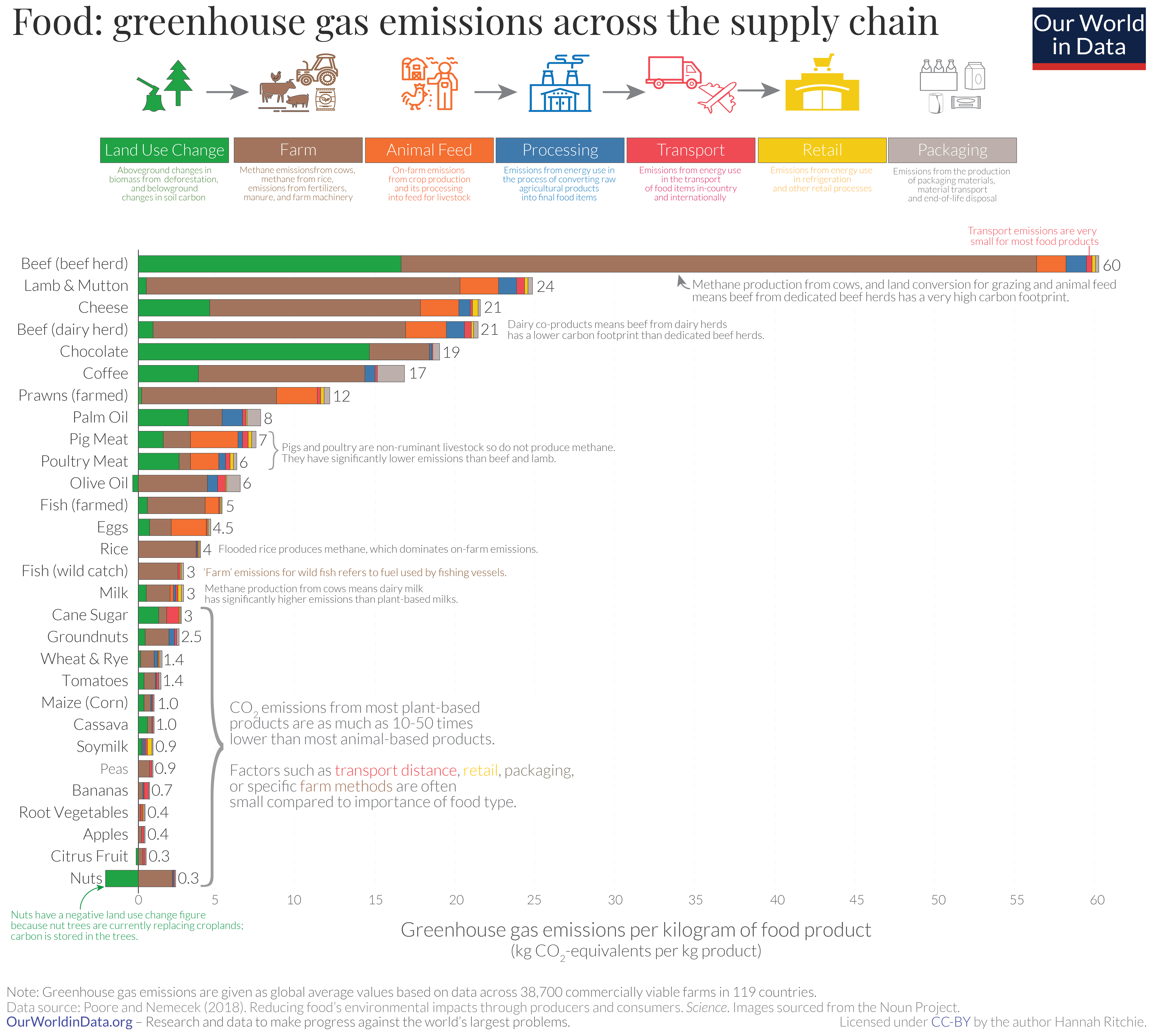Turns Out ‘Eating Local’ Doesn’t Do Much for the Planet
Credit to Author: Shayla Love| Date: Fri, 24 Jan 2020 19:56:10 +0000
In 2007, the New Oxford American Dictionary Word of the Year was locavore: showcasing the growing movement to eat foods in close geographical proximity, rather than food transported long distances.
This adage—"eat local"—has stuck around, and "local" food is often used as a selling point, with claims that it's not only healthier, but good for the environment, "since shipping food over long distances often requires more fuel for transportation," Oxford University Press noted.
Climate change is not a problem that can be solved solely with individual action—we need larger structural systemic changes in how we source our energy, how we build our buildings, and how we get around. But it remains important to consider how our food choices impact the climate since food production at large, from farming to distribution, makes up over a quarter of greenhouse gas emissions worldwide.
Those wishing to make a difference in that arena may end up reaching for local eggs or fish in their grocery stores. But a new report from Our World In Data found that "eating local" is actually "one of the most misguided pieces of advice," as Our World in Data researcher Hannah Ritchie put it.
When she broke down exactly where the greenhouse gas emissions were coming from for different kinds of foods, transportation was a nearly negligible percentage of the overall emissions. She concluded that you can make a bigger impact on reducing emissions through the actual foods that you choose to eat (or not eat)—not buying locally.
Ritchie analyzed 29 different foods products, and ranked them on how bad they were for the environment, using data from a large meta-analysis of global food systems.

As has been widely known for some time, animal products sit on top of the list. Beef is consistently one of the worst climate offenders; Ritchie found that just one kilogram of beef emits 60 kilograms of greenhouse gases. In comparison, peas put out one kilogram of greenhouse gases per kg.
But if you take a closer look to see where exactly those greenhouse gases come from, it's not from transport. Much more emissions come from land use change and the farming process itself. "Combined, land use and farm-stage emissions account for more than 80 percent of the footprint for most foods," Ritchie wrote.
That was true for most of the foods: overall, transport makes up less than 10 percent of the greenhouse gas emissions. For the big-emissions foods, like beef and pork, transport was an even smaller percent. (There is one exception, Ritchie pointed out, and that's for foods that get to us by way of plane. This is a small percentage of usually highly perishable foods, like asparagus, green beans and berries; but only about .16 percent of the miles that food travels does so by sky.)
If you've been eating local meats to assuage your guilt over consuming a climate-unfriendly food, well, alas that doesn’t appear to be a great solution. Ritchie's analysis is just the latest to show that the better way to support the environment is to eat plant-based meals.
And you don't necessarily need to go vegan to do it: A study from the Journal of Environmental Science and Technology in 2008 found that just one day a week of not eating beef and dairy could reduce greenhouse gas emissions more than buying all of your groceries from local sources.
"Whether you buy it from the farmer next door or from far away, it is not the location that makes the carbon footprint of your dinner large, but the fact that it is beef," Ritchie wrote.
Sign up for our newsletter to get the best of VICE delivered to your inbox daily.
Follow Shayla Love on Twitter .
This article originally appeared on VICE US.